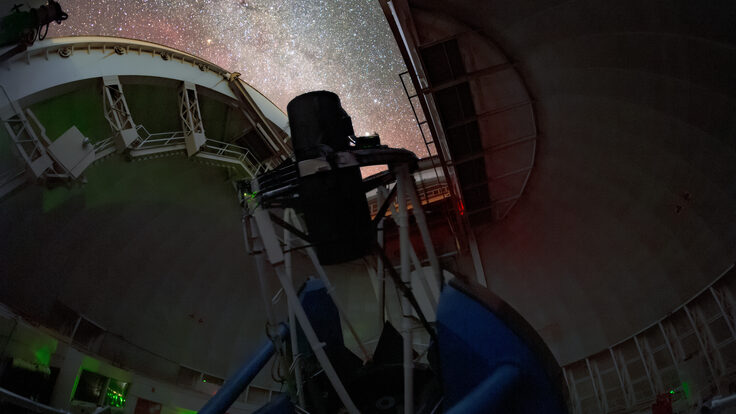
Physicists packed the CERN auditorium in September 2011 to hear about the OPERA experiment's surprising results. Image: CERN
Albert Einstein's law of special relativity might shrug off the challenge of faster-than-light neutrinos after all. Scientists in the OPERA collaboration announced today that they have found two possible causes for the surprising results they presented in September 2011, in which neutrinos seemed to beat Einstein's cosmic speed limit.
The collaboration released the following statement:
The OPERA collaboration has informed its funding agencies and host laboratories that it has identified two possible effects that could have an influence on its neutrino timing measurement. These both require further tests with a short pulsed beam. If confirmed, one would increase the size of the measured effect, the other would diminish it. The first possible effect concerns an oscillator used to provide the time stamps for GPS synchronizations. It could have led to an overestimate of the neutrino's time of flight. The second concerns the optical fibre connector that brings the external GPS signal to the OPERA master clock, which may not have been functioning correctly when the measurements were taken. If this is the case, it could have led to an underestimate of the time of flight of the neutrinos. The potential extent of these two effects is being studied by the OPERA collaboration. New measurements with short pulsed beams are scheduled for May.
This is not a final verdict on the measurement. The OPERA collaboration will continue its studies in Italy, as will the MINOS experiment at Fermilab in the U.S. and other experiments in Europe.
But even finding a few probable suspects in the case has been somewhat of a relief to many physicists. Sergio Bertolucci, the director of research at CERN, said at the recent annual meeting for the American Association for the Advancement of Science that he expected scientists to prove the neutrino result wrong. "I have difficulty to believe it," he joked, "because nothing in Italy arrives ahead of time."






